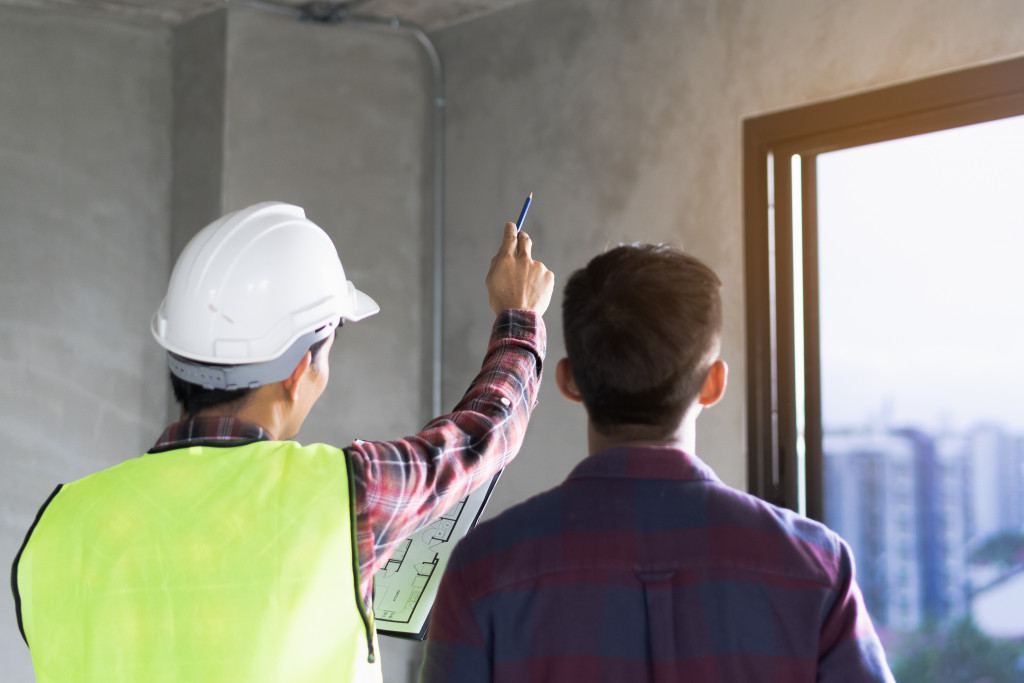- Space and layout must be carefully thought out to ensure efficiency, safety, and functionality.
- Kitchen equipment should be food-grade and safe for food production using stainless steel, copper, and aluminum materials.
- Plumbing and electrical systems must be installed correctly for high water usage in a busy kitchen.
- Ventilation is crucial for maintaining air quality and removing heat, smoke, and odors.
- Fire safety is a top priority, and all staff must be trained to use fire extinguishing apparatus correctly
If you’re planning to build or renovate a commercial kitchen, you need to consider several things. A commercial kitchen is not just any ordinary kitchen; it requires careful planning and attention to detail to ensure it meets safety regulations, efficiency, and functionality.
With the wrong design, a commercial kitchen can lead to reduced productivity and wasted resources. This blog post will discuss the most important things to consider when designing a commercial kitchen.
Space and Layout
When designing a commercial kitchen, you should first consider space and layout. You need to determine the amount of space you require to accommodate the space’s equipment, appliances, and users.
While designing the layout, you should consider the traffic flow between different kitchen areas. This will ensure that your kitchen is designed to be both efficient and safe. You should work with a professional design team to create a layout that maximizes your kitchen’s functionality.
Kitchen Equipment

Once you have the layout figured out, the next step is to consider the type of equipment you’ll need for your kitchen. The kit can include ovens, grills, fryers, refrigeration units, and dishwashers.
However, did you know your equipment should be food-grade and safe for food production? Materials such as stainless steel, copper, and aluminum are popularly used in the food industry as they resist corrosion. Not only are they resistant to corrosion, but they’re also easy to clean, durable, and aesthetically pleasing. In fact, stainless steel welding in the food industry is commonly practiced to create custom kitchen equipment that meets specific needs.
Plumbing and Electrical
A commercial kitchen requires specialized plumbing and electrical systems. You should ensure that the plumbing is designed to support the high water usage in a busy kitchen.
Additionally, the electrical systems should be designed to handle the load of multiple appliances running simultaneously. It would be best to work with a licensed plumber and electrician to install your systems safely and efficiently.
Ventilation
Ventilation is a crucial consideration when designing a commercial kitchen. Proper ventilation helps to maintain air quality and remove excess heat, smoke, and odors from the kitchen.
Proper ventilation systems will also help to prevent the build-up of grease and other harmful substances. You should work with a professional to design a ventilation system tailored to your kitchen’s size and cooking needs.
Compliance and Safety
Commercial kitchens are essential to the food industry, serving food for restaurants, hotels, and other business operations. Commercial kitchens have different rules and regulations than home kitchens, and compliance and safety considerations are paramount.
Fire Safety
Fire safety is crucial in commercial kitchens, where sources of fire are always present. You must ensure that your kitchen complies with fire safety regulations. Adequate fire extinguishing apparatus is needed, and employees must be trained to use them confidently. Likewise, all staff members must know how to deal with grease fires and should never leave the kitchen unattended.
Health and Hygiene
Health and hygiene must be a top priority in commercial kitchens as more people are typically cooking, and an unclean kitchen could lead to an outbreak of foodborne illness. All employees must be taught to pay meticulous attention to personal hygiene, proper food handling methods, and kitchen sanitation.
Food Waste Management

Managing food waste and recycling effluents is an essential consideration for kitchen safety. Avoid having food scraps thrown away in excess quantities, and use appropriate organic waste management tools. Cleaning waste materials from the kitchen is also top of your priority list, including residue management and sanitization.
Gas and Electricity Safety
It’s crucial to ensure that gas and electric appliances in your kitchen are kept in excellent working order; have them inspected regularly by a certified gas fitter or electrician. Additionally, all employees must be taught to identify fault signals and come forward immediately with any concerns. PPE must be utilized by all employees working with electrical or gas appliances.
Final Thoughts
Designing a commercial kitchen involves many factors that must be considered. A well-designed commercial kitchen can maximize efficiency, productivity, and safety while minimizing downtime and expenses. Considering the above mentioned factors, you can ensure that your commercial kitchen is designed to meet your needs and comply with all safety regulations. Plan carefully and work with a professional to make sure your kitchen is set up for success.
